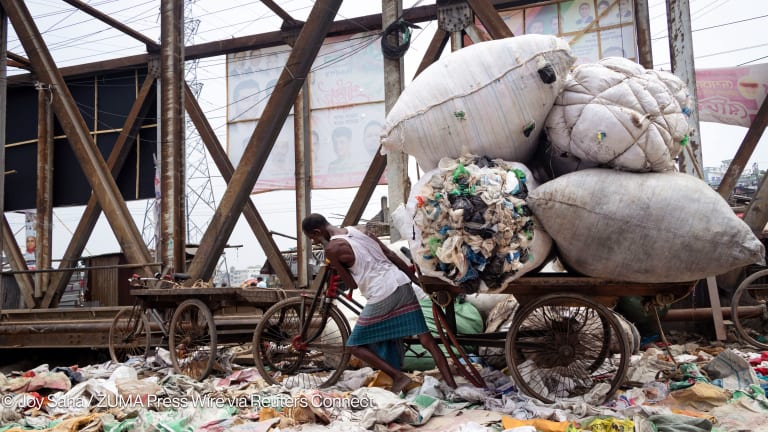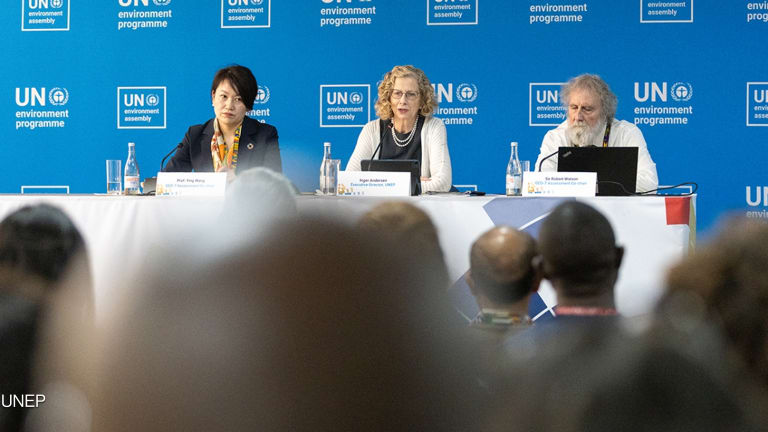Last week, governments, negotiators, and activists convened in Nairobi, Kenya, to continue thrashing out the details of a plastics treaty expected to come into effect in 2024 — despite talks ending without consensus on Sunday. But conversations revealed a concern among lower-income countries that the treaty will be unattainable without additional resources, and could impact their economic development.
This is especially true for countries in Asia, where some of the world’s biggest plastic producers are based and waste from the West is often dumped.
“We foresee a future where compliance with the treaty’s noble goals becomes an impossible challenge, risking our economies and wellbeing,” the government of Malaysia said in a statement prior to the session.








